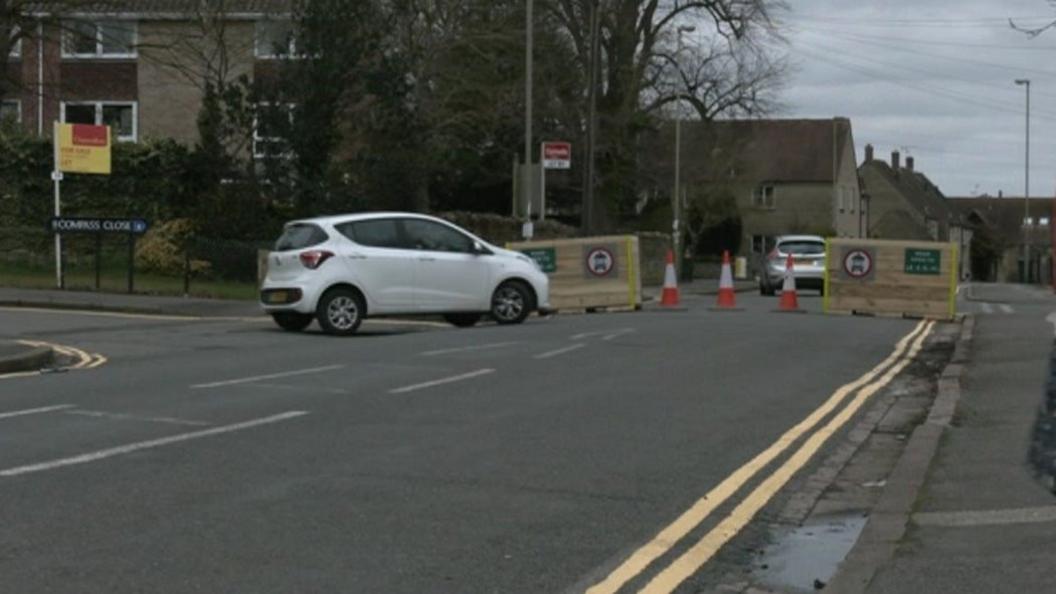East Oxford low traffic neighbour plan approved for city
- Published
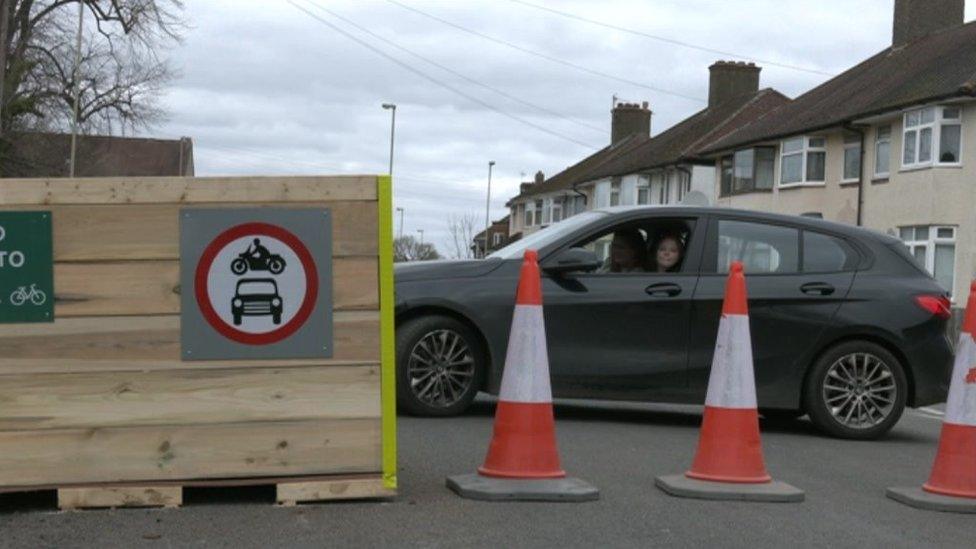
The county council said LTNs could create quieter, safer neighbourhoods
Further traffic filters in residential areas of Oxford have been approved - despite calls to delay them by the city council's leader.
Oxfordshire County Council's leader Liz Leffman approved another Low Traffic Neighbourhood (LTN) for East Oxford.
She said she understood concerns but that it was "vitally important" to follow the authority's plan.
Initial trials of the LTNs are set to be rolled out in Divinity Road, St Mary's and St Clement's in March.
Three other LTNs were introduced in March, prompting protests by some residents.
Mrs Leffman said it was "inevitable" there would be some displacement of traffic elsewhere across the city, but that the county council hoped to introduce measures to mitigate their impact.
"I know that it will be a painful process," she told a meeting on Thursday, adding: "It inevitably will be because it's about change and that change will come incrementally."
A consultation found about 2,000 residents' views on the LTN were "polarised", a county council report said, external.
Oxford City Council leader Susan Brown and her deputy Tom Hayes had urged Mrs Leffman to defer a decision on the LTNs for other measures to be introduced alongside them.
Ms Brown and Mr Hayes said waiting to roll out the councils' Connecting Oxford project, unveiled in 2019 but not yet implemented, would deliver a "more efficient bus network, alongside enhanced cycling and pedestrian infrastructure".
But Mrs Leffman said the measures could not wait if the city was to meet zero carbon targets for 2030.
Experimental traffic regulation orders (ETROs) will now be introduced in March, with a consultation running alongside them until August.
A decision on whether to make the LTNs permanent is not expected before August 2023.

Follow BBC South on Facebook, external, Twitter, external, or Instagram, external. Send your story ideas to south.newsonline@bbc.co.uk, external.
- Published13 December 2021

- Published25 November 2021
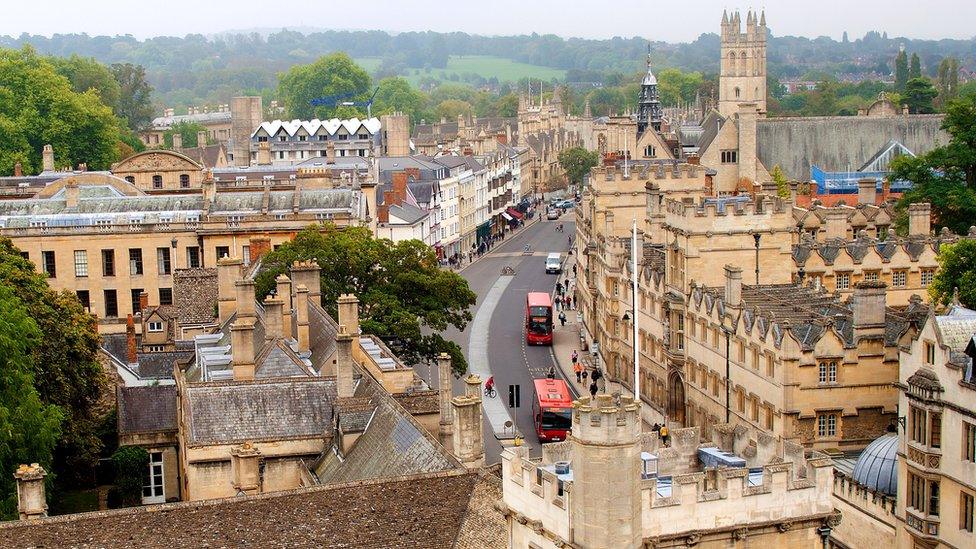
- Published22 September 2021
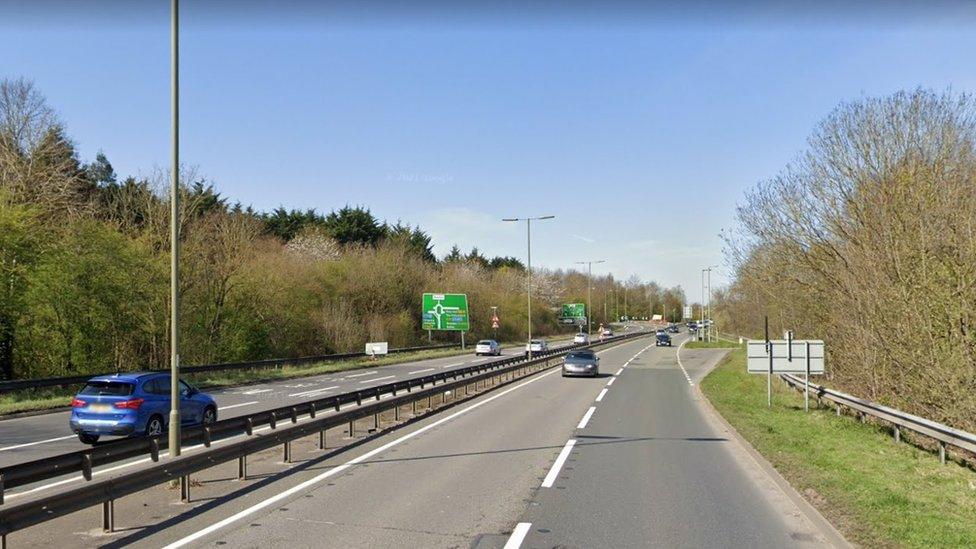
- Published29 July 2021

- Published10 June 2021
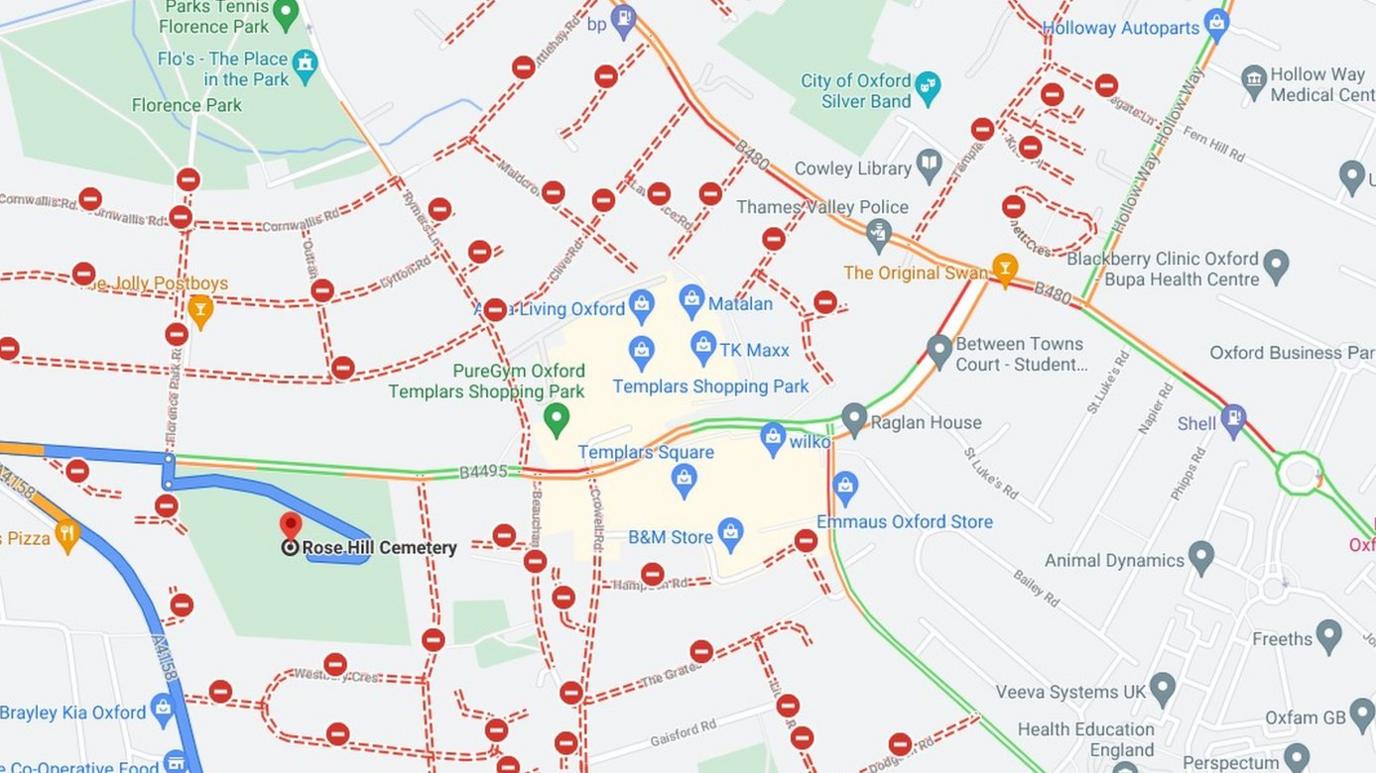
- Published31 March 2021
